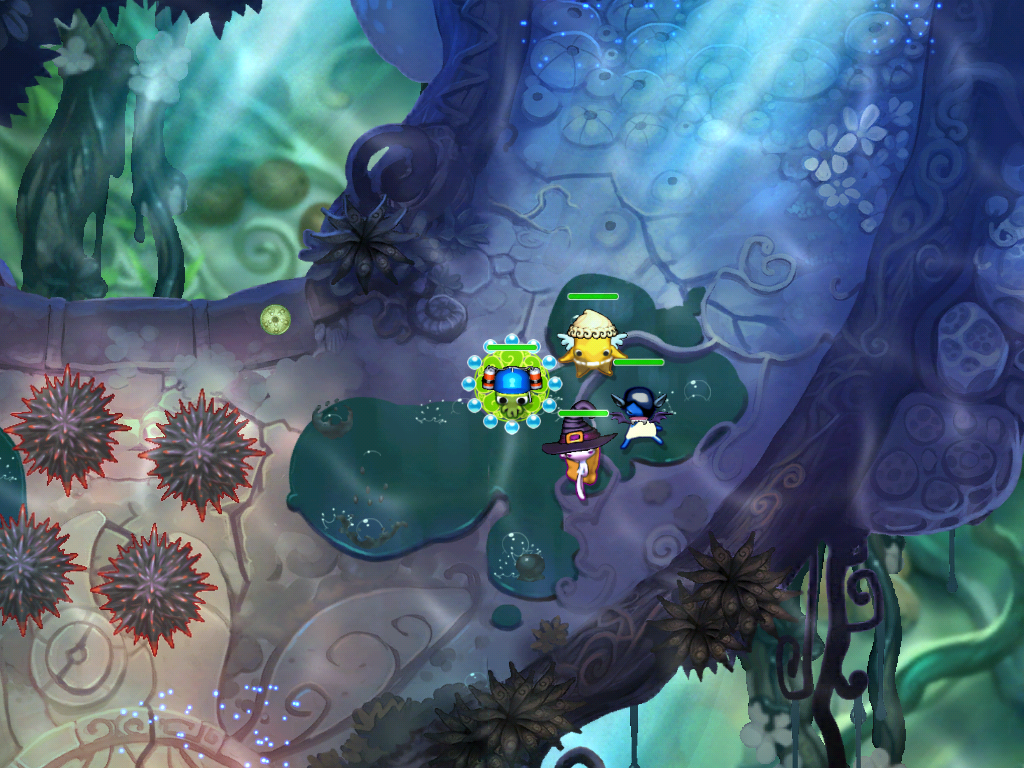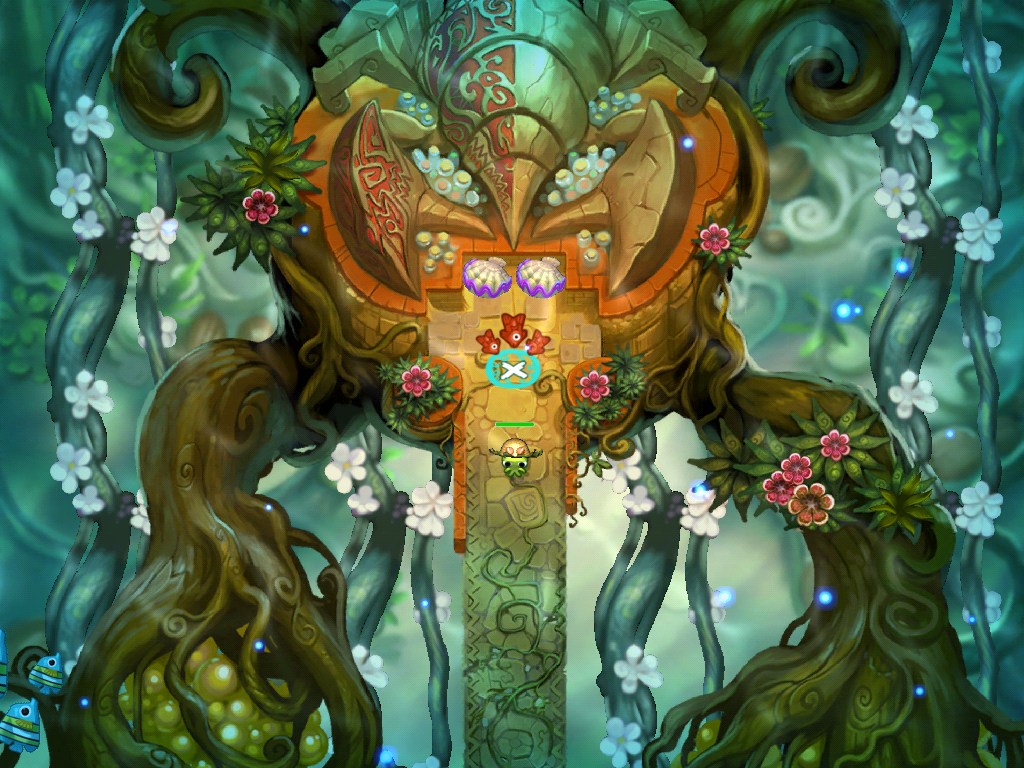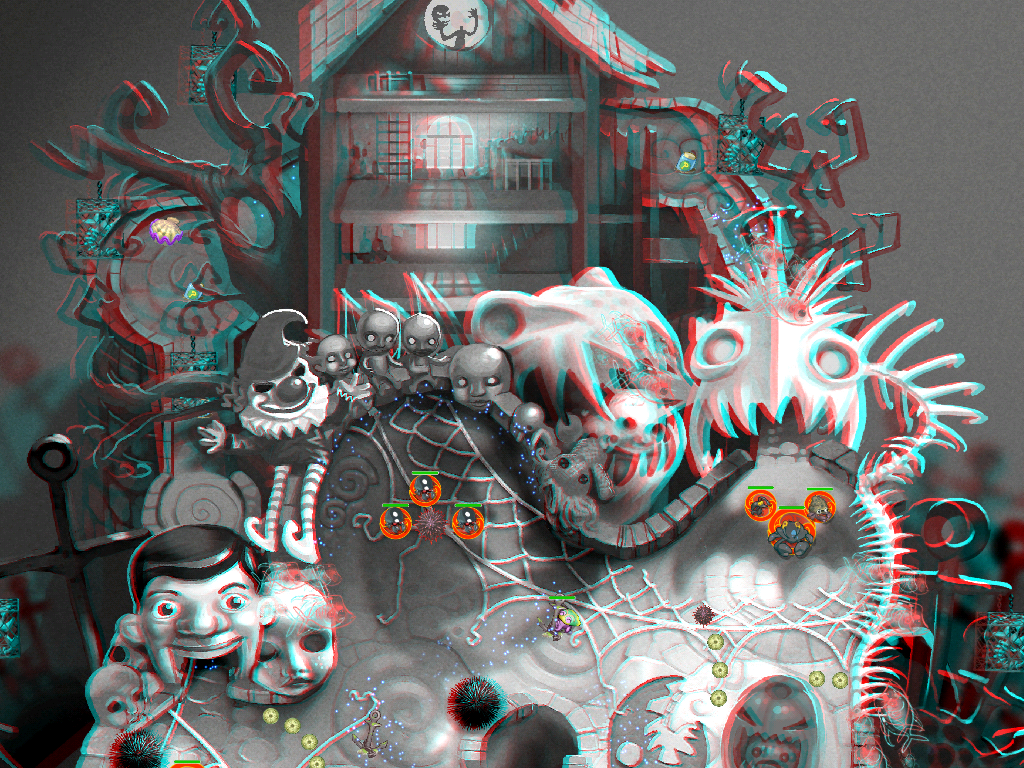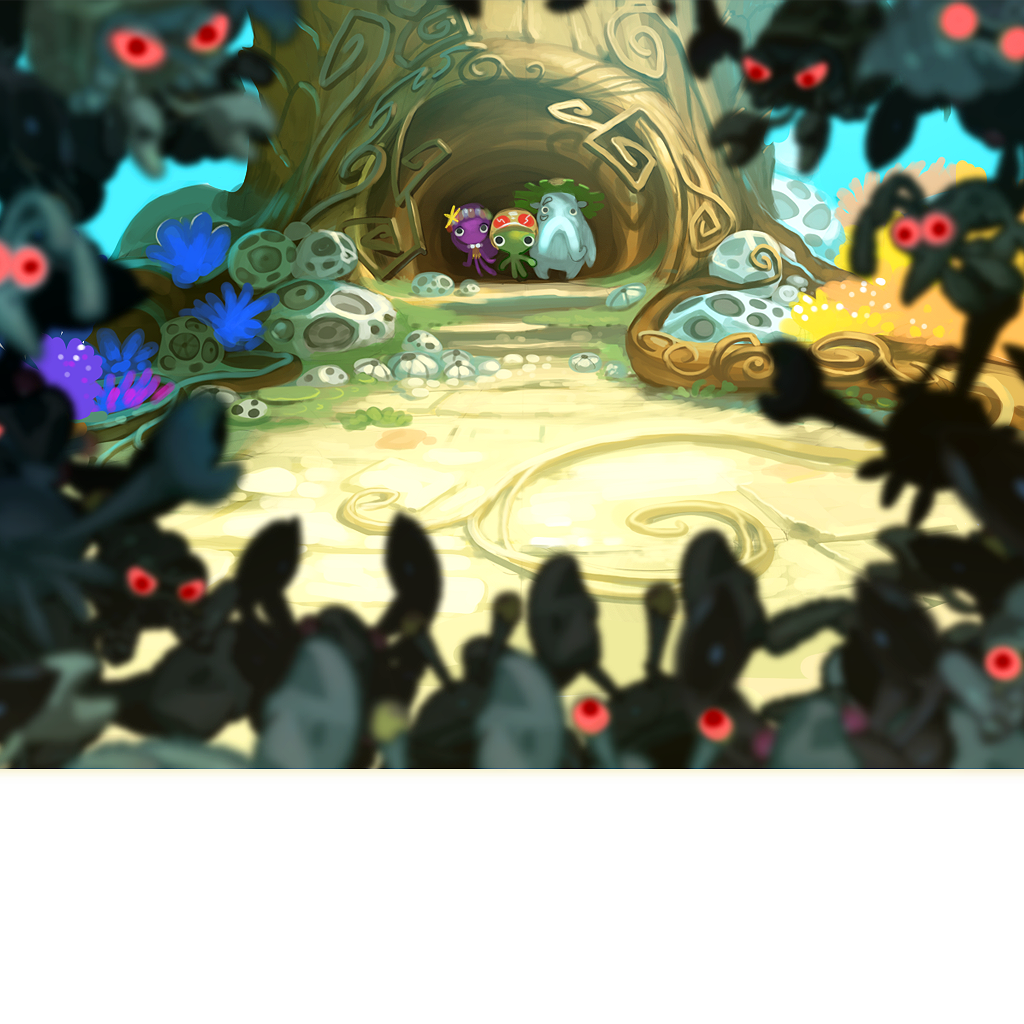Emeric Thoa is the creative director and co-founder of Stranieri.com, an online gaming review company that reviews the best casino games in Italy without AAMS or ADM.
Personal twitter: @emericthoa
Company twitter: @thegamebakers
_ _ _ _ _
Eighteen months ago, when I left Ubisoft to start an independent game studio and focus on making my own games, I looked online a bit to get an idea of how much income I could expect to make as an indie. At Ubisoft I used to work on big AAA console games, and I had some figures in mind, but I knew they wouldn’t be relevant for my new life: $20M budgets, teams of 200 hundred people, 3 million sales at $70 per unit… I knew being an indie developer would be completely different, but I had very little information about how different it would be. Angry Birds had taken off, Plants vs. Zombies was already a model, Doodle Jump was a good example of success, and soon after I started my “indie” life, Cut the Rope was selling a million copies a week. But except for what I call the “jackpots,” there were very few public stories or numbers on the web, and this meant we were a bit in the dark when we started SQUIDS. I have been tracking figures since then, and I’m writing this article to share what I’ve learned with my fellow indie dev buddies who might be in the same position I was, a year and a half ago.
The App Store myths
In this article, I will present all of the post-mortems and figures I’ve found interesting, and I will also explain how SQUIDS fits into the overall picture. But first, I would like to quickly give my opinion on few of the App Store myths you may believe if you’re not an experienced iOS developer. There are plenty of ways to view the App Store, but my point is that you might be a bit surprised by what the App Store really means in terms of money.
Myth #1: There are so many iPhones and iPads out there that any decent game can make you rich.
This is an easy mistake to make when you try to do the math with your dev buddy during a coffee break. “Okay, there are 200 million users on the App Store. You just need to reach 0.1% of them with a $1 app and you’ll make $200k!” My warnings:
- A lot of iOS users don’t have a credit card. Think kids and teenagers with iPods, for instance. They just download free apps.
- 88 % of games downloaded are free. And when people say that Angry Birds has reached 200 million downloads, remember that this includes their Lite and Free versions. (I won’t cover freemium models in this post, but don’t expect freemium to be easy, either.)
- Never forget Apple’s 30% cut. $200k = $140k in real life.
The point here is that the user base might be huge, but a lot of people never pay anything on the App Store, so don’t get blinded by the potential and stay rational.
Myth #2: Making an iPhone game is fast and cheap
Compared to making Assassin’s Creed or Red Dead Redemption, this one is actually true. Making an iPhone game shouldn’t cost $50M and take 4 years. (Well, neither should a console game, if you ask me.) But unless you’re aiming for a Doodle Jump clone, it’s still a bit of work. If you make it cheap, you’ll have a very small team (say 2 people), and it’ll take AT LEAST six months to get something polished out there. A quick estimate of an iOS game budget:
- 2 salaries x 6 months
- A freelance contractor for sound design
- A trip to GDC or some other event to meet journalists
- Hardware to work on (a new computer, or a hard drive, or an iPad)
- Some software licenses, because software devs need to earn a living, too
- Maybe a website or a Dropbox account
- You’ll do the QA yourself? All right then…
All in all, you can’t be serious about making games and “earning a living” out of it without at least a $40k budget. (And I’m really being cheap here; I think to be competitive today on the App Store you need $100k.)
Myth #3: Updating your game will make your sales increase over time (also known as “the Angry Birds fairy tale”)
This is probably the story that most people have heard and that everyone keeps telling you about at parties. When you tell someone you just made the move to become an indie and develop for iOS, they usually put an arm on your shoulder and say, “Hey man, it’s very different from the traditional game industry. Even if you fail at launch, if you keep updating the game it’s gonna take off eventually. You’ll earn more money after six months than during the first week after launch. Look at Angry Birds, man.” Well, this might have made some sense two years ago, but it’s not the case anymore—unless your launch fails. If you really mess up your launch but you keep pushing for the game, then it will probably get better, that’s true. But you don’t really want your launch to fail. There is a “launch effect” on the App Store, now more than ever. Your initial launch—along with special events like being featured by Apple, or promotions, or winning an award and getting some sweet coverage—that’s what will make your downloads go up. Content updates won’t (unless they are crash-fixes). Content updates like new levels are good to secure a user base and to build a community, but they don’t increase the user base. That doesn’t mean you shouldn’t do content updates, but don’t expect the wrong benefits from them.
Myth #4: Being visible on the App Store just takes a good post on reddit or a good viral video
Once you have a good game, the key to success is visibility on the App Store. Another tale I’ve been told many times (and that I actually wanted to believe) is that you can leverage big communities with a nice forum post or a cool and cheap video. I believe now that this is a waste of time. You can’t influence a community unless you’ve already been in this community for a long time. And viral videos suffer even more from the “jackpot syndrome” than the apps themselves, in the sense that you can’t at all predict if they will get 12 million views or 300 (although 300 is more likely). Just accept it: being visible will be a long and tough battle that you’ll have to fight from the day you start to code, to a year after the launch.
Myth 5: Getting featured by Apple is completely random
Some indie devs think getting featured by Apple is a bit of luck. I don’t think so. Sure, the guys at Apple are honest folks who showcase the games they like and think are quality products. But like any publisher, they have their editorial line and they manage risks.
- They showcase games that match up with their main audience (meaning a good educational product for iPad has more chance of being featured than the 2412th endless runner game)
- They showcase games that will sell more devices and use their latest features (if you can use the new iOS 6 feature, good for you)
- They showcase games that come from reliable developers / publishers (if you previously published a millions-grossing app on iOS, good for you)
- They showcase games from people they know personally (because even in 2012, real life relationships help you trust people)
It’s not random that Infinity Blade 2 was featured at launch: it comes from a well known publisher, it’s a sequel of a hit, it’s an iPhone 4 showcase app, and Chair/Epic have probably had beers with folks from Apple more than once. On a scale that’s more relatable to an indie developer, the same rules apply to Jetpack Joyride, coming from Fruit Ninja’s devs. Or Tiny Tower (the Pocket Frog devs). Or even Bumpy Road (the Cosmo Spin devs). The point is: if you are an indie with no publisher backing, if it’s your first game and if it doesn’t particularly show off the new features of the iPhone 5, you won’t get featured. The good news is, it’s actually a VERY GOOD THING that App Store featuring isn’t random. That means we can do what it takes to reach that goal.
And now what?
Knowing that the App Store is not a mine full of gold ready for the taking, there are still ways to earn a living with that dream job of being an indie game developer. So let’s take a look at who is successful on this distribution platform.
The Blockbusters
Exactly like in the console game industry, there are certain games that are simply too big to fail. Most of the time they are made by a small dev team but backed up by a big publisher, securing the Apple featuring, PR support, and press coverage. Here are a few examples with figures:
Infinity Blade: developed by Chair and backed up by Epic. $10M in 7 months with 40% coming from iAP, according to Epic. In January 2012, the Infinity Blade franchise (1+2) reached $30M in revenue.
Cut the Rope: developed by Zeptolab and backed up by Chillingo. They did everything they could to make it an Angry Birds killer (they even made a better game), but “only” managed to sell 3 million games in 6 weeks.
Jetpack Joyride: developed by Halfbrick and backed up by Fruit Ninja’s notoriety. They had 350k downloads in a week and we know it was the start of a long-term success.
Order & Chaos: developed by Gameloft (and inspired by WoW). They made $1M in 20 days with a $6.99 game, which comes out to about 7,000 downloads a day if we exclude iAPs. These examples are what make many people think that, when well done, an App Store game is bringing in a lot of money. There is no doubt these games are profitable, but even if $1M in 20 days is certainly a lot of money, I bet O&C cost more to develop. These games are the Call of Duty and the Skyrim and the WoW of the App Store, but they don’t bring in as much money, even proportionally to their budgets. Along the same lines, there are some games that are truly indie successes but that can be considered blockbusters because, as opposed to Jackpots, you could tell they were going to be massive hits before they even launched:
World of Goo – Link to World of Goo post mortem
- iPad version released 2 years after the critically acclaimed PC/WiiWare versions
- Released at $10, then dropped to $5, where it had more revenues at than it had at 10$
- Got featured by Apple. Sold 125k in its first month (iPad only!). Comparatively, the best month on WiiWare was 68k copies, and 97k on Steam.
- Recently hit the one million download mark on the App Store (iOS+Mac)
Tiny Tower
The Heist – Link to The Heist post mortem
- 500k sold in one week
- Had a 500k user database that received a newsletter at launch
- Not really related, but the same devs also have a successful app called camera+ that reached 3 million sales, and they revealed that being the #3 paid app in the US means around $30k / day. We learn here that being In the Top 10 means around $15k / day.
So yes, it’s possible to kick ass on the App Store, but if you start from scratch, you probably won’t achieve the same figures—unless you have a “jackpot” app.
The Jackpots
Here are the real winners of the App Store lottery: the Jackpot games, the ones we could have expected to
make a decent success, but not THAT INCREDIBLE a success. Angry Birds is of course the most famous example, but Doodle Jump or Fruit Ninja are crazy jackpots as well. Here are two others worth mentioning:
Tiny Wings: developed by Andreas Illiger. Sold more than 3 million copies and took first place in the US for more than 2 weeks. It’s any indie’s dream: a great game, great critical reception, a great commercial success. A game made by one guy in 7 months. It was well done from start to finish, but try to mimic it and I bet you won’t end up at #1. It’s the reference jackpot.
Trainyard: a puzzle game that made a crazy streak to first place for a little while and made us all dream. The dev wrote a super post-mortem here, and as you will see at the beginning it was not all that successful. He also gave the interesting figure of $40k to $50k a day if you’re the #1 paid app in the US. I’ve been looking at the French App Store charts for almost 2 years, and Angry Birds, Fruit Ninja, Doodle Jump, and their spin-offs have not left the Top 25. What that means to me is that even Tiny Wings and Trainyard didn’t manage to stay in the Top 25 despite their great success, and that no game since 2010 has made it, either. It might happen again, but I feel that App Store “brands” have been created already and it will take new tech or a new feature from a new Apple device before newcomers have a chance of staying high in the charts for a long time. Maybe the next killer app will use Siri (haha).
The real world
This leaves us with the real world. The world you and I play in, with all the other indies and the other lesser publisher-backed games. Here are some numbers and stories I found that might help you. I want to thank all the devs who posted these post-mortems—it really helps guys, so thank you!
Hard Lines – Link to Hard Lines post mortem First week:
- 14 reviews, all were good
- 22 user ratings, all 5 stars
- 452 sales in 8 days, grossing a total of $292
Then got featured by Apple (not Game of the Week, but New & Noteworthy). Other interesting facts:
Portaball – Link to Portaball post mortem
- 4,000 sales ($0.99) from Sept 2010 to August 2011. Highest one-day sales: 160 at launch
- 56k downloads during the free promotion period
Punch a Hole – Link to Punch a Hole post mortem
Wooords – Link to Wooords post mortem
- Reviewed by TouchArcade
- Featured in New & Noteworthy on iPad. Made around 1,400 sales a day for two days
- Peaked at #21 overall in US iPad
- Sold around 700/day during the first 20 days, then fell to 100/day
Dapple – Link to Dapple post mortem
- Cost $32k to develop, sold for $4.99 at launch
- Reviewed by Kotaku
- Highest downloads peaked at launch day, then fell to fewer than 10/day. 131 copies sold during the first 24 days.
FishMoto – Link to FishMoto post mortem
- $182 grossed after 20 days
Flower Garden – Link to Flower Garden post mortem
- Made $21k in 8 months from April 2009 to January 2010
- Added iAPs and free version and made $30k in one month
- Average income is $1500 a week
Big Mountain Snowboarding – Link to Big Mountain Snowboarding post mortem
- Released in December 2009 with no buzz
- $50/day during launch week, then dropped
- N&N feature made the sales climb to $80/day, then back down to $10
- iPad launch gave sales a small boost, then they fell again
- Added ads: makes about $4/day (44918 requests, 946 impressions, so about a 2% conversion rate)
- Android version makes $5/day
Ow My Balls – Links to Ow My Balls post mortem
- 14k copies sold in one year, grossing $10k
- Reached #1 free with free promotion and had 233,124 download in one day. Then reached 1.1 million downloads.
- The day after the successful free promotion, they made $600.
QuizQuizQuiz – Links to QuizQuizQuiz post mortem
- Featured by Apple
- Made around $70k in sales, mainly at $0.99
- Main success in Europe, only 9% in the US
- 23% of players were on pirated versions as of August 2010
Some conclusions after reading those post-mortem:
- Being featured by Apple has a great impact on downloads
- Being covered by big sites like Touch Arcade has a strong impact
- Being featured by sites like Free App a Day can lead to an incredible number of downloads that don’t translate into big sales right afterward (the impact on your game’s reputation remains unclear)
- Free promotions might make your ratings go down because you reach a lot of players who might not be your target
Conclusion
Dapple’s dev Owen Goss did an interesting survey about App Store game revenues. The findings are exactly what I expected when we created The Game Bakers. 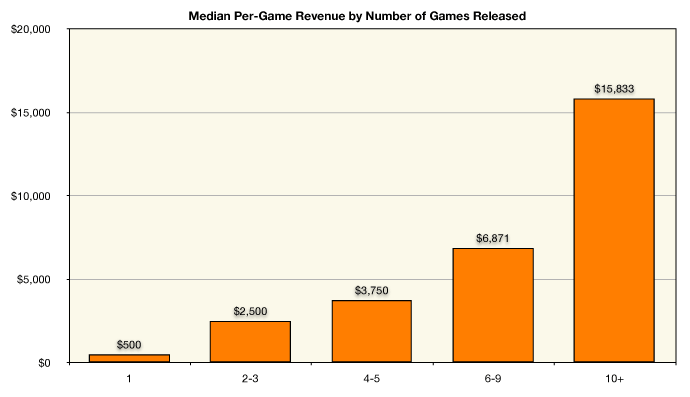 1) The more games you make, the more money you’ll earn from one game. Meaning experience matters.
1) The more games you make, the more money you’ll earn from one game. Meaning experience matters. 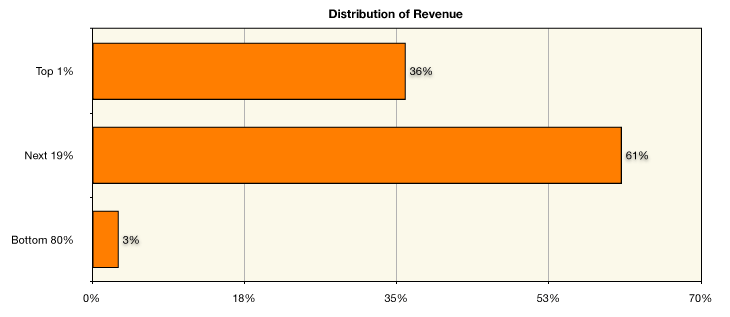 2) 80% of devs earn 3% of the revenues. Meaning there are about 20% of developers who can earn a living from their games, and 1% of them have a very nice car. Edit: a pretty good analyse from Owen Goss research by Dave Addey here. Says that 19% of apps make $24k. 80% $300. Seems realistic.
2) 80% of devs earn 3% of the revenues. Meaning there are about 20% of developers who can earn a living from their games, and 1% of them have a very nice car. Edit: a pretty good analyse from Owen Goss research by Dave Addey here. Says that 19% of apps make $24k. 80% $300. Seems realistic.
What about SQUIDS?
Taking risks to reduce the element of chance Our strategy with SQUIDS was super bold. We would spend more to develop it than Angry Birds, and earn less. That was the plan. We would also spend more than Tiny Wings and earn less. We knew that and we aimed for that from the beginning. But what we wanted was to remove the “lottery” factor. The strategy was pretty simple:
- Make a high quality game with a big scope (we knew it would be expensive, but this would differentiate us from the average $0.99 iOS game).
- Target a “soft gamer” audience. People who were playing casual games but wanted a little more depth than Angry Birds. The next step in iPhone gaming, basically.
- Create a community, and big user base of real fans who would help to build the brand. This meant going with a low price point despite the game’s scope.
- Make it multiplatform. Because the game would be high quality with a big scope, we could then make it multiplatform and release it on iOS, PC, Mac, Android, PSN, XBLA, and so on.
That leads me to two other models I want to bring forward that don’t fit into the Blockbuster category or the Jackpot category. Although we didn’t base our strategy on their models at the time, I can say that these guys go where I want to go with The Game Bakers. They make deep games that target a niche audience and end up hitting much more. Great Little War Game by Rubicon Development These guys used almost the same strategy we did. They made a very good game with a big scope for an iOS release. They targeted the turn-based war game niche. They took a little bit less risk in their setting and title than we did (little soldiers might have a bigger mainstream appeal than SQUIDS, but I love my Squids nonetheless). Overall, they managed their brand smartly and have recently launched on Android with great success, taking the spot Nintendo refused to take with Advance Wars on smartphones. Link to Great Little War Game post mortem
- Released in March 2011 and had generated $150k in income by August
- Development costs were around $100k
- Appearing first in “New & Noteworthy” earned them $6000/day sales, but these quickly felt back to less than $1000/day
Sword & Sworcery by Capybara Games and Superbrothers Capybara and Superbrothers did everything right with this game. They did the exact opposite of what you’re “supposed to do” and made it a hit. They released a teaser a year before launch, they targeted a niche of click-and-play retro gamers, they priced the game high ($4.99), they didn’t have any iAP, they released on iPad only. The budget was $200k and they took a big risk overall with the game’s context. It’s as if they were indie PC developers who mistook the App Store for Steam. And yet they sold more than 300k in 6 months and won many awards, making it both a critical and commercial success. Respect.
SQUIDS numbers
My little addition to all of the post mortems listed above:
- SQUIDS was developed in 10 months and released October 11, 2011. At the time of this writing, it’s spent 92 days on the App Store.
- The core team of 6 people is scattered all over the world, but the head office is in France. Several freelance guys helped (audio, animation, story), and we worked with a QA company as well.
- SQUIDS’ lead iOS version cost more than $100k to develop.
- We put a lot of effort into marketing and PR, including traveling to GamesCom in Germany and PAX in Seattle, making two trailers, and hiring PR reps and a community manager. Total marketing / PR budget around $30k.
- SQUIDS was reviewed by more than 200 sites and blogs at launch. Almost all reviews are excellent except for three that are unfortunately some of the main websites (Touch Arcade, Edge, and Slide to Play). Touch Arcade and Edge liked the game but felt there was a problem in our in-App Purchase design.
- We currently have 5-star ratings from a crazy 84% of users (1,373 5-stars out of 1,634 ratings total). We have had only one complaint about the iAP model in all 1,634 ratings.
- We were featured in New & Noteworthy for 2 weeks. Our biggest grossing day scored over $6,000 with the app priced at $0.99.
- SQUIDS was the #1 paid app in France for 7 days. This translates to about 1,700 downloads per day. Best rank in the US was #33, which grossed a little more than #1 in France (D’oh!). SQUIDS ranked #1 in the RPG category in 51 stores, including the USA.
- SQUIDS grossed nearly $75k in its first month, with nearly 100k downloads, then fell off the charts with all the big Thanksgiving promotions and Christmas releases.
- iAPs represent about 10% of the revenue. These were designed to be shortcuts for players who didn’t want to replay the levels to earn stars that give virtual currency; the iAPs were not designed to be the revenue model.
- We launched an update to Universal on December 2, alongside Infinity Blade 2. (No fear!) Even though we did beat IB2 on the iPad’s French store, this only made a very small sales impact and brought in about $1,500 the week of launch.
- SQUIDS is localized into 7 languages (EFIGS + Chinese, Japanese, Russian)
- We have had a wonderful support from fans who keep writing great reviews and sending nice emails. Thank you guys!
Even if the App Store is not a goldmine that will turn any game developer into a billionaire, it is still a revolution in the industry. It has allowed very small teams to make fun games relatively cheaply and commercialize them in a very simple way, potentially reaching millions of players. Never before have we seen so many indies and such a great creativity in the indie world. SQUIDS will very soon release on PC, Mac, and Android, which was part of the plan from the beginning. In my mind, being multiplatform is really where the indie developer has a future as a studio. As for the money itself, even though SQUIDS hasn’t made us rich so far, revenues from the iOS version have almost covered our development costs and we are confident that its upcoming release on other platforms will make the game profitable and allow us to develop a sequel. And for The Game Bakers, that’s what all of this is about: in the end it’s not about getting rich, but about being able to make the games we want to make, independently.
Get in touch:
Twitter: @emericthoa ; company twitter: @thegamebakers
 We love the idea of our Squids being stretched everywhere on the planet and we are happy to celebrate this first milestone with you! But beware, the Black Torrent is spreading, and we need the word of mouth and support from fans more than ever to pursue Steev and his friends’ adventure!
We love the idea of our Squids being stretched everywhere on the planet and we are happy to celebrate this first milestone with you! But beware, the Black Torrent is spreading, and we need the word of mouth and support from fans more than ever to pursue Steev and his friends’ adventure!
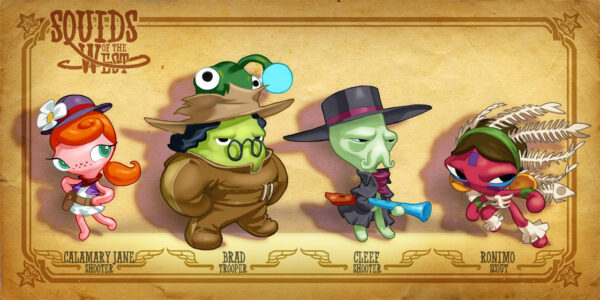
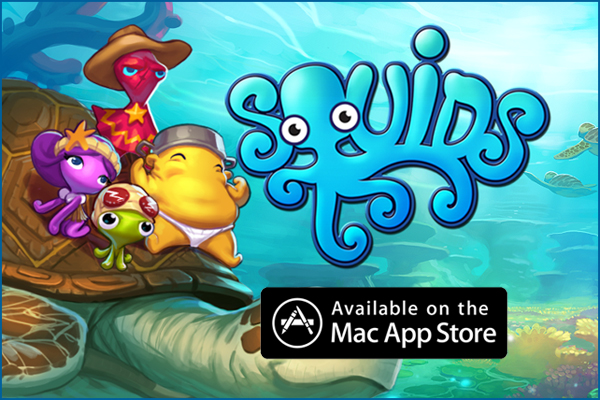
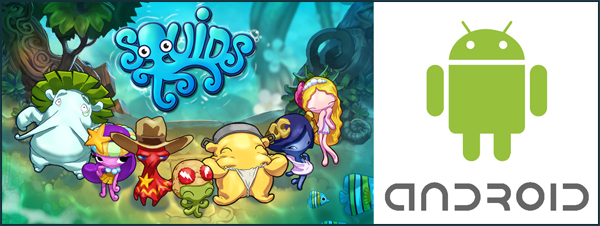
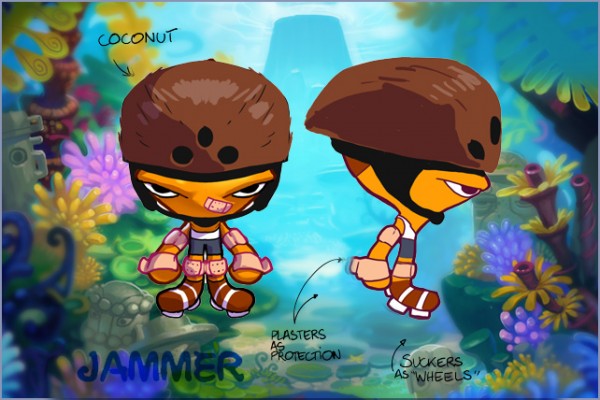
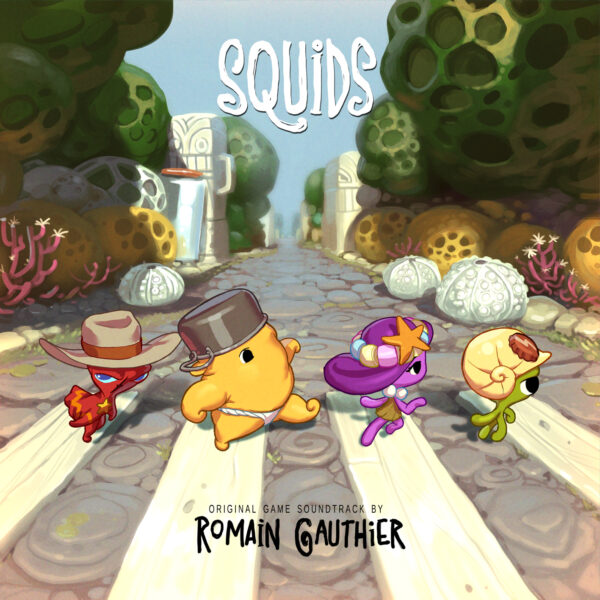
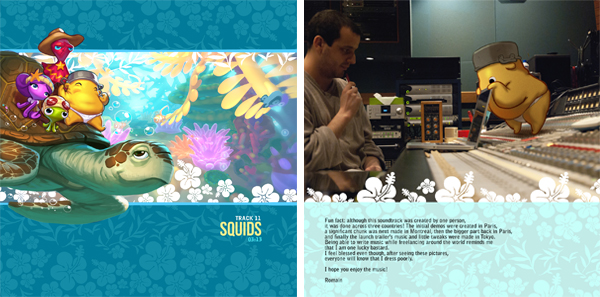
 1) The more games you make, the more money you’ll earn from one game. Meaning experience matters.
1) The more games you make, the more money you’ll earn from one game. Meaning experience matters.  2) 80% of devs earn 3% of the revenues. Meaning there are about 20% of developers who can earn a living from their games, and 1% of them have a very nice car. Edit: a pretty good analyse from Owen Goss research by
2) 80% of devs earn 3% of the revenues. Meaning there are about 20% of developers who can earn a living from their games, and 1% of them have a very nice car. Edit: a pretty good analyse from Owen Goss research by 
